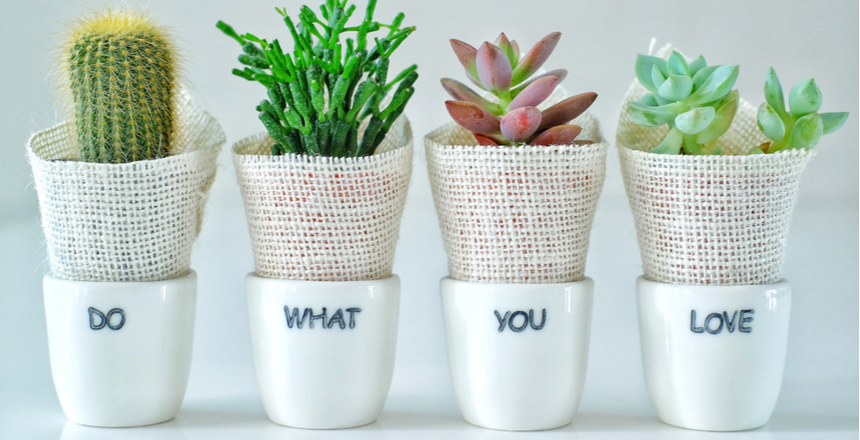There are certain things in life which are simply calming and rejuvenating. You get involved in doing them and forget everything else. In turn, they become your stress busters, your friends. One such hobby that you can take up is gardening as it is said that “a garden is a friend you can visit anytime”. Plan it, nurture it and spend some relaxing time of the day in it. Taking up gardening as a hobby can be truly beneficial for you. It gives a sense of satisfaction & accomplishment when you see the flowers blossoming, plants growing, which were sown by you as seeds.
In recent years, there has been a surge in interest towards gardening. More and more people are taking it up as a hobby to take care of their plants and gardens. Though it appears to be a daunting task for beginners, a little bit of planning and patience can help you get going with it. You can design and have a beautiful garden, which will be looked up as your creation. So, here is a basic yet beneficial guide of gardening for beginners that will come to your assistance in designing your own.
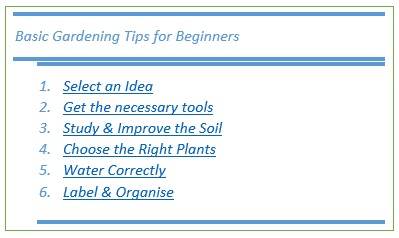
 Select an Idea
Select an Idea
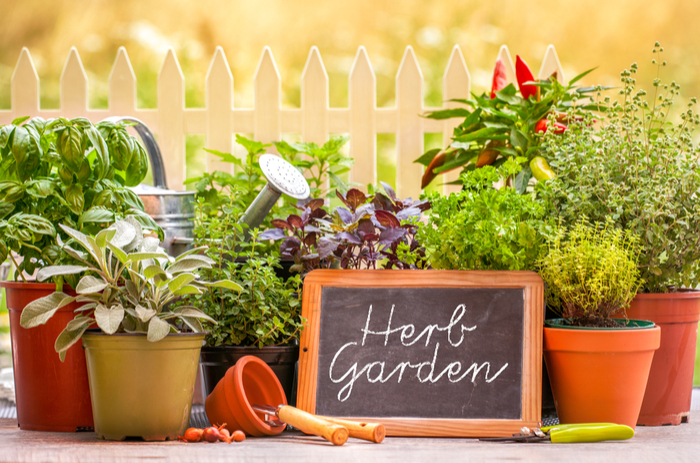
This should be the first step in your journey of gardening. There are different types of gardens that you can have depending upon the available space and time at your end. Among others, you can plan a green, serene space, garden full of flowers, or vegetables and herbs garden. You can also have a mix of these if you so desire. But, go slow and start at a small scale. It is also advisable to know your region well as part of the planning. Every plant requires a certain weather condition to grow and blossom. So, opt for plants that are tuned to your area and region. In India, there is a tropical climate in most parts, which is ideal for growing Jasmine, bougainvillaea and vegetables like lady finger, lemon and like. Making this kind of analysis is a pre-requisite to have that garden oasis.
 Get the Necessary Tools
Get the Necessary Tools
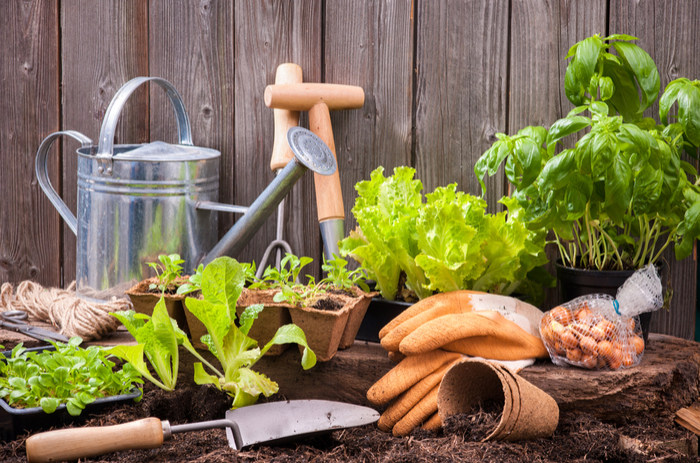
Once you have an idea regarding the type of garden you plan to have you should then get the necessary tools for gardening. To get started, you will need only a handful of them like pruning scissors, lopping pruners, spade, trowel and garden fork. These different garden tools will help in the below manner.
![]() Pruning Scissor:With a pruning scissor you can remove weeds, dead flowers, branches and bushes. It will help you to give a clean and healthy look to the garden.
Pruning Scissor:With a pruning scissor you can remove weeds, dead flowers, branches and bushes. It will help you to give a clean and healthy look to the garden.
![]() Lopping Pruners: If you have big plants in the garden, then lopping pruner is a must have. It has long handles and large blades and can help in maintaining large plants easily.
Lopping Pruners: If you have big plants in the garden, then lopping pruner is a must have. It has long handles and large blades and can help in maintaining large plants easily.
![]() Spade: It is a hand tool, which comes useful in digging the ground. Sometimes it is also considered as a type of shovel.
Spade: It is a hand tool, which comes useful in digging the ground. Sometimes it is also considered as a type of shovel.
![]() Trowel: A scoop-shaped pointed tool it is helpful in digging small holes, transferring plants to pots and mixing fertilizer.
Trowel: A scoop-shaped pointed tool it is helpful in digging small holes, transferring plants to pots and mixing fertilizer.
![]() Garden Fork: It is useful in breaking soil clumps, removing weeds and the roots of old plants.
Garden Fork: It is useful in breaking soil clumps, removing weeds and the roots of old plants.
 Study & Improve the Soil
Study & Improve the Soil
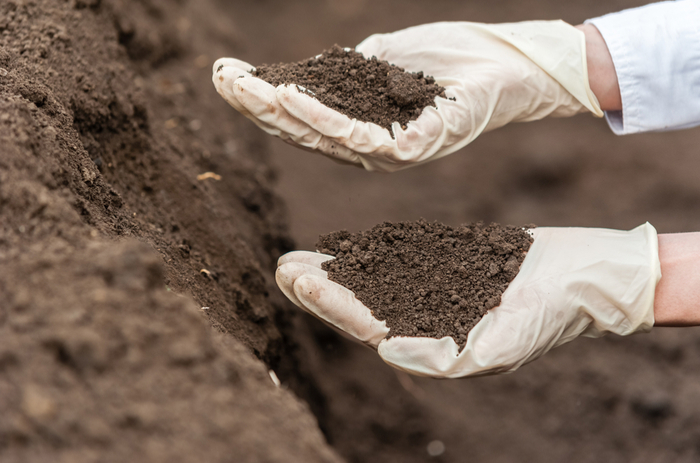
After you have got the tools, you should develop some understanding about the soil. It will help you decide what to plant and how you should treat the soil. You can get a test done to check the soil quality. Alternatively, you can dig some and see if the soil has clay-like or sandy texture. But, either way enriching the soil will only do good to the plants. Below are the different ways of improving the soil quality.
![]() Ideally, you should opt for soft soil, rich in nutrients so that it penetrates properly and boosts the plants’ health.
Ideally, you should opt for soft soil, rich in nutrients so that it penetrates properly and boosts the plants’ health.
![]() Add wet waste compost from time to time to improvise the soil quality.
Add wet waste compost from time to time to improvise the soil quality.
![]() If you are treating the soil of potted plants, then ensure that there is a hole in the base to drain excess water. It will keep the soil fresh and help in maintaining the health of the plants.
If you are treating the soil of potted plants, then ensure that there is a hole in the base to drain excess water. It will keep the soil fresh and help in maintaining the health of the plants.
 Choose the Right Plant
Choose the Right Plant
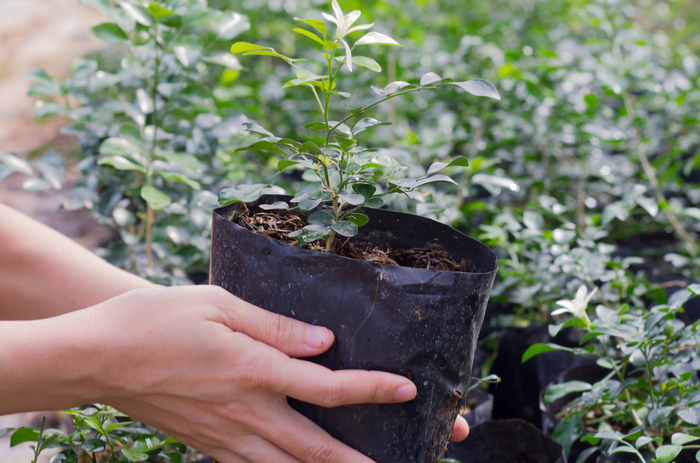
Now, comes the interesting part of choosing plants for your garden. To start with, opt for herbs and vegetables as they are easy to grow and need less maintenance. Colourful flower plants may be more exciting but will be difficult to manage in the beginning. So, start with vegetables like coriander, chillies, and tomato. These won’t take long to grow, and if you are going wrong, you will be able to figure it out fast. Besides, when they grow, using those fresh herbs and vegetables from your own garden for cooking will be motivating enough to hone your gardening skills further. As far as possible, try to opt for plant seeds or get them young. Seeing them grow from infancy will be absolutely delightful. But, if you are getting tiny plants be extra careful while planting them.
 Water Correctly
Water Correctly
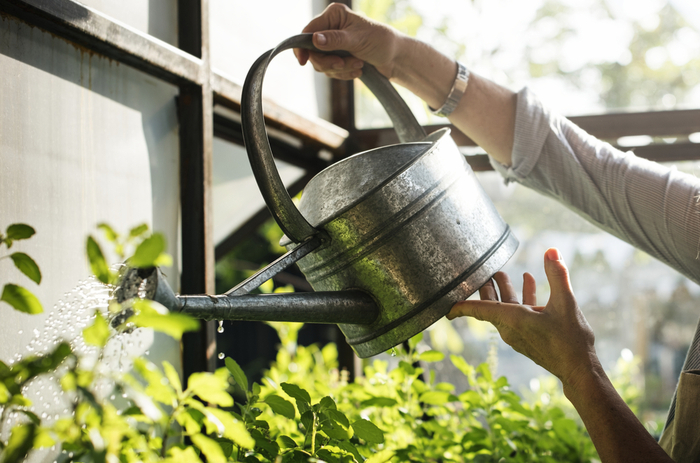
After planting, you will need to water correctly and timely. When it comes to watering the plants, as a gardening novice, you should understand the purpose behind it. You need to water plants enough for their survival, but don’t overdo it otherwise the soil will be waterlogged. Here is how you should water your plants
 Water the plants slowly. This will help the water to reach deep into the soil.
Water the plants slowly. This will help the water to reach deep into the soil.
 If you have got young plants, then you need to water them daily. This is important for nourishing their roots.
If you have got young plants, then you need to water them daily. This is important for nourishing their roots.
 Established plants don’t need to be watered every day. Depending upon the weather you should water them once in 2-3 days.
Established plants don’t need to be watered every day. Depending upon the weather you should water them once in 2-3 days.
 Label & Organize
Label & Organize
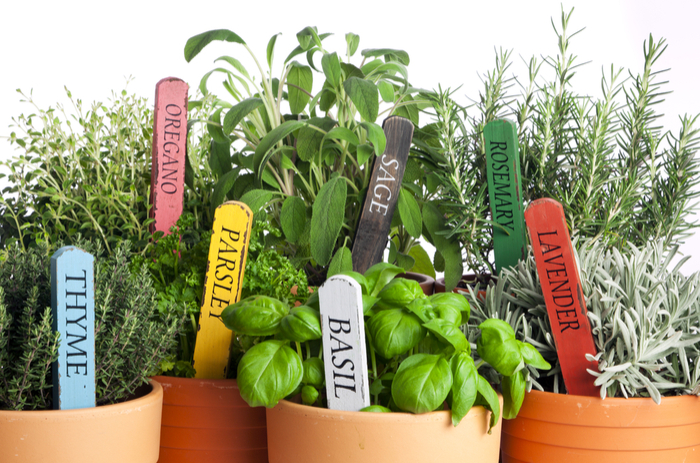
Now that everything is in place you should plan, label and organize your garden if you want it to be a success.
 Plan: You will need to decide where you have to place each plant. Spacing is essential for their survival and growth. Avoid keeping all young plants together as this can impact their growth. In addition, you should also research how tall and wide a plant will grow, so that they don’t hinder the growth of other plants.
Plan: You will need to decide where you have to place each plant. Spacing is essential for their survival and growth. Avoid keeping all young plants together as this can impact their growth. In addition, you should also research how tall and wide a plant will grow, so that they don’t hinder the growth of other plants.
 Label: After placing the plants you should label them. It will help you recall the names and help others in knowing about the plants at a glance. You should make small labels and place them next to the plant.
Label: After placing the plants you should label them. It will help you recall the names and help others in knowing about the plants at a glance. You should make small labels and place them next to the plant.
 Organize: As a gardening novice it is a good practice to click a picture of every plant you place in your garden. Make a scrapbook, paste the picture along with the name of the plant and other information. You can also chart the progress of every plant and the complete garden.
Organize: As a gardening novice it is a good practice to click a picture of every plant you place in your garden. Make a scrapbook, paste the picture along with the name of the plant and other information. You can also chart the progress of every plant and the complete garden.
Design your Home Garden
Follow the above basic tips for flower and vegetable gardening for beginners. You just need to do some basic research on the plants, soil and get started. If you have any doubts, then start with potted plants. It can be an easy and perfect way of developing an insight into different plants and soils. Here are some pictures of home gardens for your inspiration.
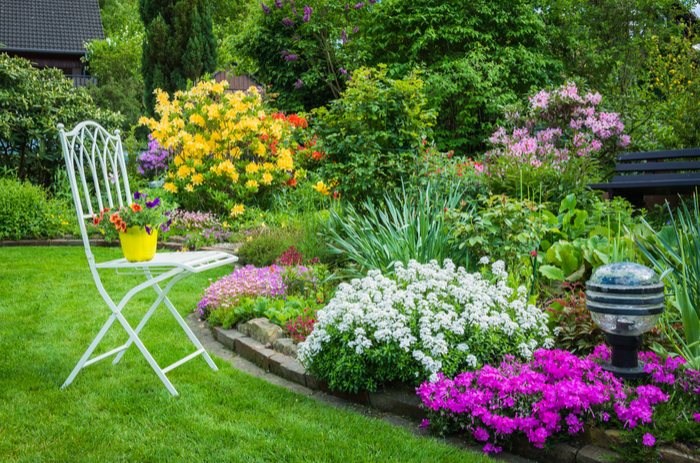
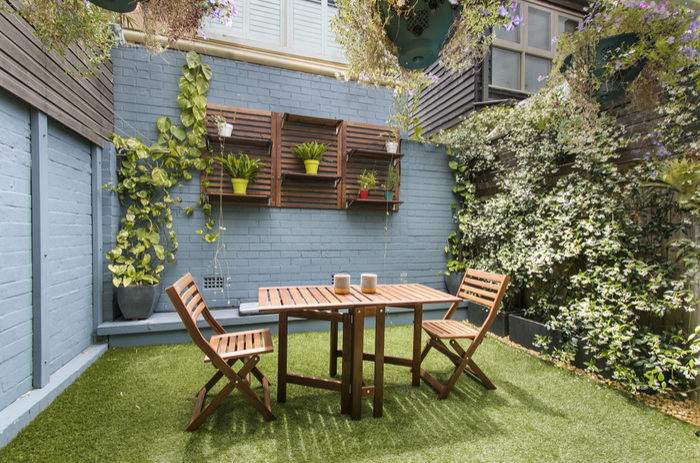
Gardens in Valmark Homes
If you are looking for a home, which comes with such a space where you can plan your garden, then check the homes by Valmark developer. Designing spacious homes amidst lush, green landscape, Valmark takes the first step in bringing its home dwellers closer to nature. Every Valmark project has ample green space, manicured lawns and gardens with colourful, blossoming flowers. You can check our projects here and decide for yourself.
In one of our projects, Valmark CityVille, you get an option of a private garden or a terrace garden. Designed for the nature lovers, these homes are spacious inside out giving you enough scope to develop your gardening skills. You can design and decorate your garden, and make use of the balconies to keep potted plants. Moreover, the climate of Bangalore is what makes it popular as the Garden City. Supporting flora of various kinds, you can soon learn about various green, flowery plants and vegetable plants. Invest in Valmark CityVille, the finest Villaments in Bangalore and enjoy the many benefits of your own private garden.


